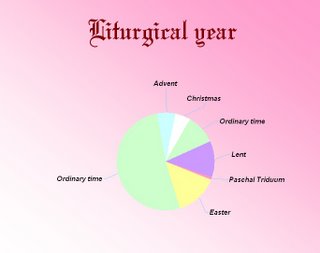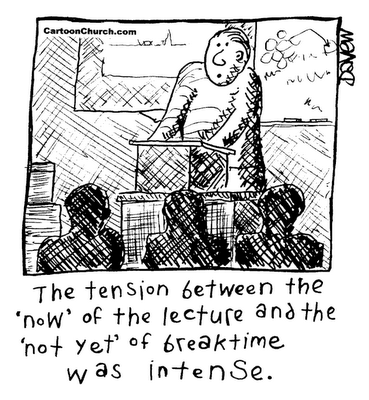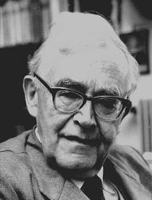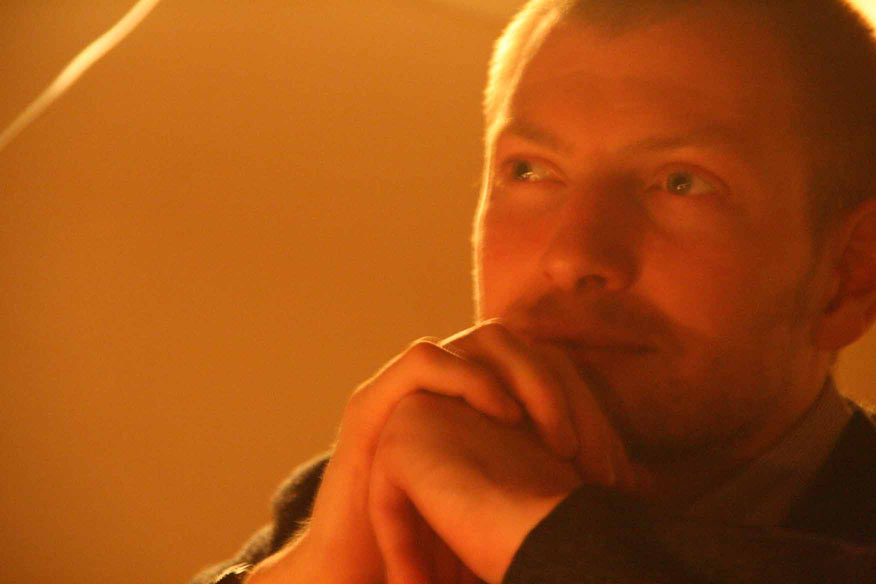
I wonder how your day will start tomorrow? For most of us, it will be affected by whatever quiet day plans our staircase have, but nonetheless, I suspect that we will still go about our usual tasks of morning ablutions and breakfast – some also coping with cantankerous children, all before the dark, wet and cold journey to college.
There will be one important addition in our household, which is the opening of the first window of our Advent Calendar. Never mind that Advent fast doesn’t actually begin until Sunday, the commercial world with its candles and calendars would have us start tomorrow – and when ‘Divine’ fair-trade chocolate is involved – who am I to refuse!
Yet in the Christian calendar, today, on the eve of the Advent fast, we celebrate the feast of St Andrew the Evangelist. (To misquote Isaiah, ‘Let us feast and drink, for tomorrow we fast’!) But for those of us whose faith has been nurtured by the evangelical tradition of the church this particular form of feasting and fasting may seem unusual and irrelevant. We tend to have little experience (prior to our training at Ridley of course) of the benefits of following the liturgical calendar with its rhythm of the Christian year.
The distribution of seasons in the Christian year gives us some indication of how we might live a balanced and ordered life in Christ. A cursory analysis reveals that there are about 65 days each year given over to fasting, in Advent and Lent; about 85 years given over to feasting, in Christmas and Easter; and that broadly the rest of the year is described as ‘ordinary’ time, in which we attend to the normal rhythms of life – its needs and pleasures.
In the Charismatic Evangelical wing of the church, I have sometimes observed a temptation to live our lives as though every day were a feast, ever hoping to surf that next ecstatic wave of the Spirit’s renewing power. While this may sometimes be well and good, we often forget the Spirit’s work in the fast. (It was, after all, the Spirit who drove Jesus into his wilderness fast, and by whose power, Jesus was enabled to resist temptation.) This contributes to an unbalanced understanding of life’s order. There is in this, a correlation with the wider culture in which we live.
Speaking on the Rule of St Benedict last week in Rome, Archbishop Rowan commented on the disordered nature of modern society in relation to time:
‘In modern Europe - and the North Atlantic world - we live in a climate where both work and leisure seem to be pervasively misunderstood, where both appear regularly in inhuman and obsessive forms. Time is an undifferentiated continuum in which we either work or consume. Work follows no daily or even weekly rhythms but is a twenty-four hour business, sporadically interrupted by what is often a very hectic form of play.’
(Rowan Williams, ‘Benedict And The Future Of Europe’)
How then does this question of ordered time and living relate to the feast of St Andrew, and the readings we have heard this morning? The answer is found somewhere in the ‘Now’ and the ‘Not Yet’ of Christian life.
Andrew is often characterised as the archetypal evangelist. It is he who, according to John’s gospel, brings his brother Simon Peter to Jesus. (And since it is Peter upon whom the church is built, we can confidently sloganise ‘No pastors without the evangelists!’) In our readings today St Paul articulates the urgent cry of the evangelist: ‘How are they to believe in one of whom they have never heard? And how are they to hear without someone to proclaim him?’ We are called to take up the challenge of proclaiming Christ in the here and now of Christian life. To celebrate and proclaim in our feast that Christ has come, and that the powers of sin and death have been conclusively defeated in his death and resurrection.
But we also recognise that Christ’s rule is not yet realised completely on earth. In our Advent fast, we remember the lingering effects of our fallen nature. We resist our captivity to the ways of a fallen world, and we are renewed in our steadfast anticipation of Christ’s return.
Our Christian year concludes with the celebration of the evangelist – the one who prompts us to undertake the urgent work of proclaiming Christ’s kingdom; but it begins with the watchful, hopeful and joyful anticipation of Christ’s coming to us – both in time 2,000 years ago, and again at the end of time. Today, on the Feast of St Andrew we say to the world: ‘Jesus has come! Come and see!’ Tomorrow, as our Advent fast begins, we wait: ‘He is not yet come, but he is coming soon!’
Amen. Come, Lord Jesus.


 I wonder how your day will start tomorrow? For most of us, it will be affected by whatever quiet day plans our staircase have, but nonetheless, I suspect that we will still go about our usual tasks of morning ablutions and breakfast – some also coping with cantankerous children, all before the dark, wet and cold journey to college.
I wonder how your day will start tomorrow? For most of us, it will be affected by whatever quiet day plans our staircase have, but nonetheless, I suspect that we will still go about our usual tasks of morning ablutions and breakfast – some also coping with cantankerous children, all before the dark, wet and cold journey to college.
 This is me! I haven't been able to add a photo of myself to my profile - so I thought I would experiment with posting a photo as an entry... Hope it works fine... (The photo was taken during dinner on New Year's Eve 2005. I was staying in a cottage in the middle of the North York moors with my wife, Sara, and 9 of our friends. We had a wonderful time!)
This is me! I haven't been able to add a photo of myself to my profile - so I thought I would experiment with posting a photo as an entry... Hope it works fine... (The photo was taken during dinner on New Year's Eve 2005. I was staying in a cottage in the middle of the North York moors with my wife, Sara, and 9 of our friends. We had a wonderful time!)
